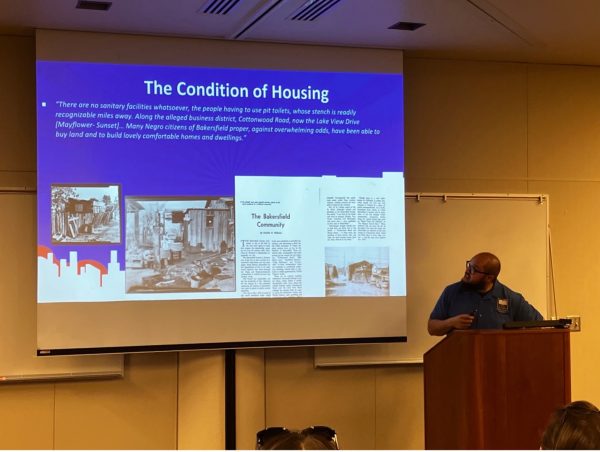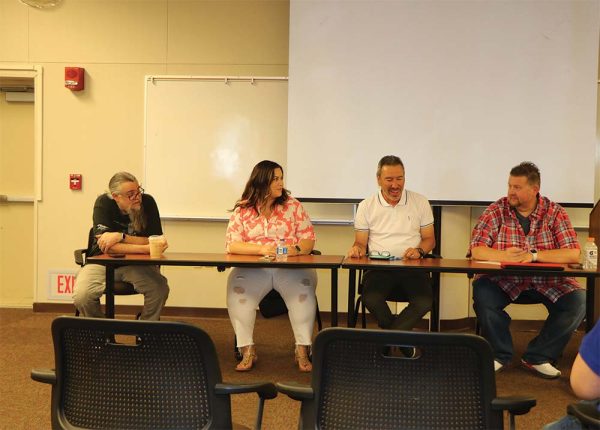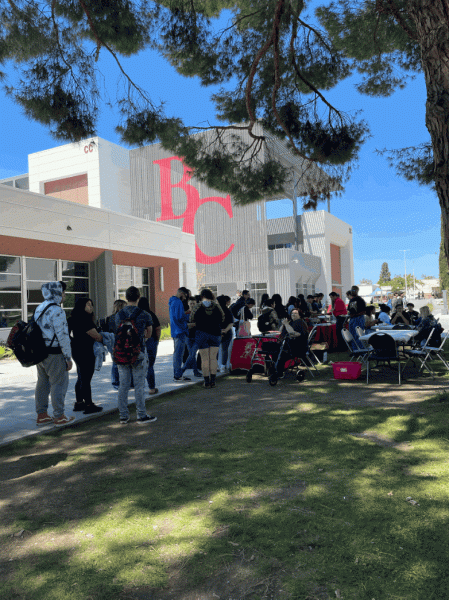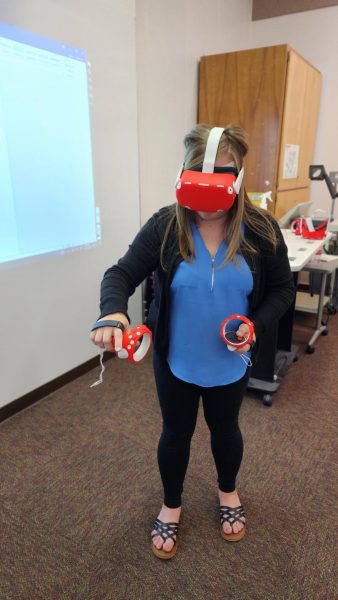New research on Latino/a studies: academia changes how we view history
April 5, 2022
Bakersfield College for its fourth session of the fourth annual Jess Nieto Memorial Conference virtually hosted panelists who are uncovering research for future education about various aspects and walks of Latino/a life. PhD candidate from the University of Chicago Linda Esquivel and BC professors Brenda Valadez and Omar Gonzalez were panelists on the webinar “New Research in Latino/a Studies.”
Each of the panelists had a different specialty that their research had focused on and that they presented on, ranging from the research on the local labor force history, organizer Lupe Anguiano, and transnationalism sports with a focus specifically on Mexican boxing.
Gonzalez noted that his research on the history behind and the rise of ethnic Mexican boxing was particularly spurred by his father’s heart attack, and the fear of losing his father provided a lens that colored how he looked at his sources, easily creating a connection between his father and the tie between ethnic Mexican boxing and death.
His presentation “A History of Violence, Masculinity, and Nationalism: Pugilistic Death and the Intricacies of Fighting Identity” walked attendees through the aspects of the area of study that appear to have been overlooked in academia.
“It opened up a whole world of ethnic studies for me in terms of looking at how boxing sheds light on the social significance of the sport for ethnic people, especially in Southern California,” Gonzalez said.
Esquivel spoke on the topic of detained Latino labor forces who were immigrant workers in the U.S. and covered their strikes as well as their relation to law enforcement. Her research reached back over a hundred years ago and connected directly with local institutions such as law enforcement. One story in particular Esquivel recapped in her presentation recounted how the migrant workers contributed to the filling of jails in the summer of 1952 and this led to the creation of a stockade for migrant workers, to relieve the pressure off of the jails.
Esquivel stated later, “While I do adhere to a lot of the macro arguments about how the immigration enforcement unfolds during this period, at the same time my big contribution is ‘it’s difficult depending on where you are.’ What happens in Chicago is not what’s going to happen in Bakersfield or Texas.”
The faculty advisor of the student group Latinas Unidas, Valadez covered the history behind Lupe Anguiano, specifically aspects of Anguiano’s life as it is separated into three chapters; her relationship with the church, working in DC, and later with Cesar Chavez.
At 19 she entered a convent and was particularly moved by those who lived in poverty or without homes and protested for those she felt deeply for. Valadez noted that Anguiano’s activism was criticized by her peers, even having been written to by a bishop who told her that it was not her place to protest political matters. Eventually leaving her position as a nun, she worked to fight for various legislature such as the Equal Rights Amendment (ERA), before leaving DC to work with Cesar Chavez on United Farm Workers.










